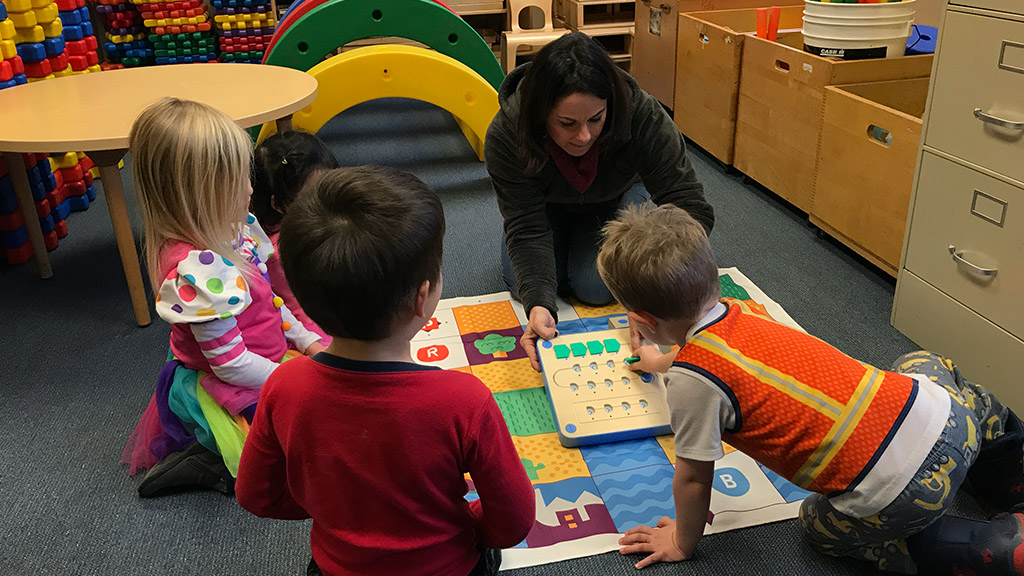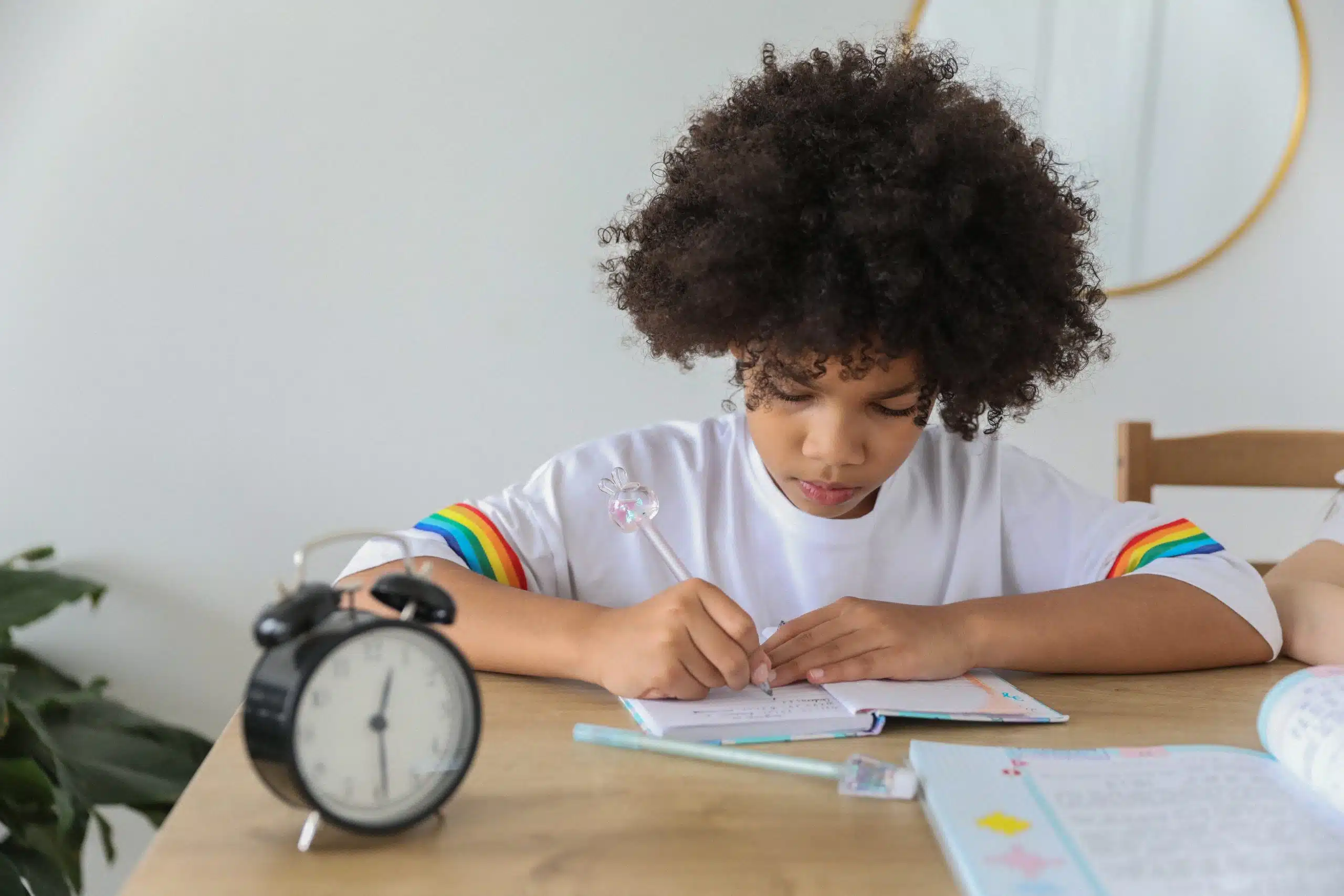What Are the Best Educational Options for ADHD Children?
When helping ADHD children succeed in education, consider options like specialized schools, individualized plans, therapy, classroom adjustments, social skills training, alternative settings, and parent groups. These tailored approaches provide holistic support for growth and progress.
Key Takeaways
- Specialized ADHD schools offer tailored support and curriculum for academic and social growth.
- Individualized Education Plans (IEPs) outline personalized academic goals and support services.
- Behavioral therapy interventions like play therapy and parent training enhance emotional regulation and behavior management.
- Classroom accommodations optimize learning with sensory integration and task modifications.
- Social skills training programs enhance communication and peer interaction skills for ADHD children.
Specialized ADHD Schools

If your child is struggling with ADHD, specialized ADHD schools can provide tailored support and strategies to help them thrive academically and socially. These schools are designed to cater specifically to the needs of students with ADHD, offering a supportive environment where they can excel. The effectiveness of ADHD schools in enhancing student success has been well-documented, with many children showing significant improvement in their academic performance and social skills.
One of the key benefits of specialized ADHD schools is their tailored curriculum impact. By customizing educational plans to suit the unique learning styles and challenges of students with ADHD, these schools can help your child reach their full potential. The individualized attention and specialized support provided in these settings can make a significant difference in your child’s academic progress and overall well-being.
Choosing to enroll your child in a specialized ADHD school can be a positive step towards ensuring they receive the targeted support they need to thrive academically and socially. With the right resources and strategies in place, these schools can play an important role in helping your child overcome the challenges associated with ADHD and achieve their educational goals.
Individualized Education Plans (Ieps)
Individualized Education Plans (IEPs) are essential documents that outline personalized academic goals and support services for students with ADHD. These plans are tailored to meet the specific needs of each child, providing individualized strategies and personalized accommodations to help them succeed in their academic journey.
IEPs often include effective interventions such as specialized teaching techniques, extended time for assignments, preferential seating, or access to assistive technology. By implementing these personalized approaches, students with ADHD can overcome challenges and reach their full potential in the classroom.
Success stories abound when IEPs are carefully crafted and diligently followed. Many students have shown remarkable progress and academic achievement with the support provided through their individualized education plans. These success stories highlight the importance of personalized accommodations and targeted interventions in helping children with ADHD thrive academically.
If your child has ADHD, consider exploring the option of an Individualized Education Plan to make sure they receive the tailored support they need to excel in their education.
Behavioral Therapy Interventions

Let’s explore the benefits of play therapy, effective parent training strategies, and classroom accommodations that can support children with ADHD.
Play therapy offers a creative outlet for your child to express themselves and learn coping skills.
Parent training equips you with tools to manage behavior and foster positive interactions.
Classroom accommodations can create a supportive environment for your child’s learning.
Play Therapy Benefits
Consider exploring the benefits of play therapy as a valuable behavioral therapy intervention for children with ADHD. Play therapy offers various advantages, including aiding in sensory integration. Through engaging in play activities, children can enhance their sensory processing skills, leading to improved focus and attention regulation.
Moreover, play therapy is beneficial for promoting emotional regulation in children with ADHD. By providing a safe and structured environment for expression, play therapy enables children to learn how to identify and manage their emotions effectively. This can result in reduced impulsivity and increased emotional resilience over time.
The interactive nature of play therapy allows children to develop essential social skills, such as communication and cooperation. Through playing with others, children can practice turn-taking, sharing, and problem-solving, all of which are essential for successful social interactions both in and out of the classroom.
Parent Training Strategies
To enhance your child’s progress in managing ADHD symptoms, exploring effective parent training strategies can greatly contribute to behavioral therapy interventions.
Positive reinforcement is a key aspect of these strategies. By rewarding desired behaviors with praise, privileges, or small incentives, you can motivate and reinforce positive actions in your child.
Vital in implementing these rewards is behavior management. Setting clear expectations and consequences for both positive and negative behaviors helps your child understand boundaries and encourages self-regulation.
Behavior management techniques, such as creating a structured routine, providing clear instructions, and using visual aids or charts, can help your child stay organized and focused.
Additionally, practicing active listening and effective communication with your child fosters a supportive environment for them to express their feelings and challenges.
Remember, every child is unique, so adapting these strategies to suit your child’s individual needs and preferences is crucial.
Classroom Accommodations for ADHD
Implementing classroom accommodations for ADHD can greatly enhance your child’s learning experience and overall success in school. When it comes to sensory integration, creating a calming environment can make a significant difference for children with ADHD. Consider providing noise-canceling headphones, fidget tools, or preferential seating to help minimize distractions and promote focus.
Incorporating essential classroom strategies is crucial. Break down tasks into smaller, manageable steps, offer visual schedules, and provide clear, concise instructions. Encouraging movement breaks and allowing flexible seating arrangements can also help channel excess energy in a positive way.
Establishing a consistent routine and implementing a reward system for good behavior can motivate your child and reinforce positive habits.
Classroom Accommodations and Modifications

When supporting ADHD children in the classroom, it’s vital to provide effective accommodations and modifications to help optimize their learning experience. Sensory integration plays an essential role in creating a conducive environment for ADHD students. Consider incorporating fidget tools or providing a quiet corner where they can retreat if feeling overwhelmed. Adjusting the classroom structure can also make a significant difference. This can involve seating the child near the front of the class to minimize distractions or using visual schedules to help them stay organized.
Furthermore, breaking down tasks into smaller steps and providing clear, concise instructions can aid in keeping ADHD students focused and on track. Implementing regular movement breaks or allowing for flexible seating arrangements can help release excess energy and improve concentration.
Social Skills Training Programs
Consider enrolling your child in social skills training programs to enhance their interpersonal interactions and build strong relationships with their peers. These programs offer invaluable benefits such as group therapy sessions that can help your child develop essential communication skills.
Through social skills workshops, your child can learn strategies to navigate peer relationships more effectively.
Group therapy benefits in social skills training programs provide a supportive environment where children can practice social interactions with guidance from trained professionals. These programs focus on improving peer relationships by teaching children how to initiate conversations, maintain eye contact, and understand social cues.
Technology-Assisted Learning Tools

Enhance your child’s educational experience by incorporating technology-assisted learning tools to support their academic growth and development. Interactive learning tools can engage your child in a way that traditional methods may not, making the learning process more enjoyable and effective. These tools offer a hands-on approach that caters to different learning styles, helping children with ADHD stay focused and retain information better.
Adaptive technology is another valuable resource that can personalize the learning experience based on your child’s individual needs and progress. By adjusting the difficulty level or providing immediate feedback, adaptive technology guarantees that your child is continuously challenged at an appropriate pace, boosting their confidence and motivation.
Integrating technology-assisted learning tools into your child’s educational routine can complement traditional teaching methods and create a dynamic environment where they can thrive. These tools not only cater to the unique learning preferences of children with ADHD but also offer a fun and interactive way to enhance their academic skills.
Alternative Education Settings
Consider specialized ADHD schools, homeschooling options, and therapeutic day programs as alternative education settings for your child.
These environments can provide tailored support, individualized learning plans, and specialized interventions to help your child thrive academically and socially.
Exploring these options can empower you to find the best educational setting that suits your child’s unique needs and learning style.
Specialized ADHD Schools
ADHD children may benefit from attending specialized schools designed to cater to their unique learning needs and challenges. These schools often have structures that provide tailored support, such as smaller class sizes, individualized learning plans, and specialized teaching methods.
Parent involvement is essential in these settings, with educators working closely with families to create a cohesive support system for the child both at school and at home.
Peer support plays a significant role in specialized ADHD schools, fostering a sense of understanding and camaraderie among students facing similar struggles. This supportive environment encourages social connections and can help boost self-esteem and confidence in ADHD children.
The learning environment is carefully designed to minimize distractions and provide tools and strategies to help students stay focused and engaged in their education.
Choosing a specialized ADHD school can offer a comprehensive approach to supporting your child’s academic and social development, providing a space where they can thrive and reach their full potential.
Homeschooling Options
Exploring homeschooling options can provide a flexible and personalized educational setting for children with ADHD. Homeschooling allows for tailored learning experiences that cater to your child’s specific needs. For children with ADHD, unschooling benefits can be particularly advantageous. This approach focuses on the child’s interests and allows for more hands-on, experiential learning, which can help keep them engaged and motivated.
One challenge often associated with homeschooling is socialization, but there are ways to address this concern. Online resources offer virtual group activities, classes, and social skills training to make certain your child has opportunities to interact with peers.
Additionally, outdoor learning opportunities can provide valuable experiences for children with ADHD, allowing them to engage with nature and incorporate movement into their learning.
Therapeutic Day Programs
Investigating therapeutic day programs can offer a structured and supportive alternative education setting for children with ADHD. These programs often incorporate outdoor experiential activities, providing a hands-on learning environment that caters to different learning styles. Engaging in therapeutic group activities outdoors can help ADHD children focus better, as the dynamic setting stimulates their senses and encourages movement.
Moreover, therapeutic day programs frequently integrate mindfulness meditation and relaxation techniques into their daily routines. These practices can aid children in developing self-regulation skills, reducing impulsivity and improving attention span. By fostering mindfulness and teaching relaxation techniques, these programs empower children with ADHD to manage stress and emotions effectively.
Parent Education and Support Groups

Consider joining parent education and support groups to connect with others who understand the challenges and triumphs of raising a child with ADHD. These groups offer valuable resources such as online platforms where you can access information, share experiences, and learn about effective coping strategies. Additionally, many organizations providing these services also offer counseling services to help parents navigate the complexities of ADHD management.
Being part of a support group can provide peer support, allowing you to discuss concerns, celebrate successes, and exchange tips with individuals who are facing similar situations. The shared understanding within these groups can offer a sense of belonging and reduce feelings of isolation that parents of children with ADHD may sometimes experience.
Multisensory Teaching Approaches
Discover how incorporating multisensory teaching approaches can enhance your child’s learning experience and support their academic success in managing ADHD effectively. Children with ADHD often have different learning styles, and incorporating sensory integration techniques can help address these individual preferences.
Multisensory teaching approaches engage multiple senses simultaneously, such as sight, hearing, touch, and movement, to reinforce learning and improve memory retention.
By incorporating sensory integration into your child’s educational plan, you can cater to their specific learning style, making lessons more engaging and effective. For example, using hands-on activities, visual aids, and interactive games can help reinforce key concepts in a way that resonates with your child’s unique way of processing information.
These approaches not only make learning more enjoyable but also enhance comprehension and retention. Understanding your child’s learning style and incorporating multisensory teaching approaches can make a significant difference in their academic progress.
Executive Function Skill Development
Let’s tackle Executive Function Skill Development for ADHD children together!
We’ll explore Organizational Strategies to help streamline tasks, Time Management Techniques to enhance productivity, and Cognitive Flexibility Exercises to boost adaptability.
These tools can empower your child to navigate challenges and reach their full potential in their educational journey.

Organizational Strategies for ADHD
To help your child with ADHD develop their executive function skills, implementing organizational strategies is vital for their academic success and daily functioning. Time management plays a significant role in aiding children with ADHD in prioritizing tasks and staying on track. Encourage your child to use tools like timers or planners to break down assignments into manageable segments, making it easier to focus and complete tasks effectively.
Additionally, fostering cognitive flexibility is key in helping your child adapt to changes and switch between different activities. You can practice this skill by introducing new routines gradually and providing clear explanations for any alterations. Creating visual schedules or checklists can also aid in reinforcing organizational skills and promoting independence in your child’s daily activities.
Time Management Techniques
Implementing effective time management techniques is essential for enhancing executive function skills in children with ADHD, aiding them in prioritizing tasks and maintaining focus.
Task prioritization plays a vital role in helping children with ADHD manage their responsibilities effectively. Encourage your child to create a daily to-do list, ranking tasks based on importance. This visual aid can assist them in understanding what needs to be done first, reducing feelings of overwhelm.
Distraction management is another key aspect of improving time management skills for children with ADHD. Help your child establish a distraction-free workspace by minimizing noise and visual disturbances. Encourage them to use tools like noise-canceling headphones or study in a quiet area to enhance focus. Additionally, teach your child techniques such as the Pomodoro method, where work is divided into intervals with short breaks in between, to improve concentration.
Cognitive Flexibility Exercises
How can you help your child improve their cognitive flexibility through targeted exercises that enhance executive function skills?
Engaging in problem-solving activities can be a fun and effective way to boost cognitive flexibility in children with ADHD. Encourage your child to play attention-shifting games that require them to focus on different tasks and switch between them quickly. These games can help improve their ability to shift attention efficiently, a key aspect of cognitive flexibility.
Additionally, incorporating creative thinking exercises into your child’s routine can further enhance their cognitive flexibility. Encourage them to think outside the box, come up with alternative solutions to problems, and explore different perspectives. By fostering creativity, you can help your child develop the skills needed to adapt to new situations and challenges.
Task switching challenges are another excellent way to improve cognitive flexibility. Encourage your child to switch between different tasks or activities, gradually increasing the complexity as they progress. By practicing task switching, your child can become more adept at moving between different cognitive processes, ultimately enhancing their executive function skills.
Frequently Asked Questions
How Can I Find Affordable Adhd-Specific Schools in My Area?
To find affordable ADHD-specific schools in your area, explore financial assistance options. Check if schools offer evaluations to tailor support. Stay positive and informed as you navigate this process, seeking the best fit for your child’s needs.
What Are the Key Components of a Successful IEP for Adhd?
To guarantee a successful IEP for ADHD, focus on individualized strategies tailored to your child’s needs. Engage in active parent involvement, collaborate with support systems, and prioritize academic success. Together, you can create a plan that sets your child up for achievement.
Are There Specific Behavioral Therapy Methods That Work Best for Adhd?
When it comes to ADHD, cognitive behavioral therapy and mindfulness techniques can be effective. Pairing these with parenting strategies and medication management can provide a holistic approach to managing symptoms and improving daily functioning.
Can Classroom Accommodations Be Tailored to Specific Learning Styles?
You can benefit from individualized strategies in the classroom. Utilize sensory accommodations and visual aids to support your specific learning style. Cognitive behavioral therapy can also help manage ADHD symptoms and improve academic performance.
Are There Online Resources for Parents to Learn More About ADHD Strategies?
You can explore valuable resources to enhance your understanding of ADHD strategies. Engage with online support groups, webinars, and workshops tailored for parents like you. These tools offer guidance and insights to navigate your child’s unique needs.
Conclusion
To sum up, when it comes to finding the best educational options for ADHD children, it’s crucial to explore a variety of approaches. This can include specialized schools, individualized education plans, and behavioral therapy interventions. By collaborating closely with educators, therapists, and support groups, you can help your child thrive academically and socially.
Remember, every child is unique, so don’t hesitate to explore different options until you find the right fit for your child’s needs. Keep advocating for your child and never give up on their potential.

Hey there! 👋 I’m a proud mom and passionate writer, sharing my parenting journey. 📝 Join me as I navigate the ups and downs of motherhood, offering tips, advice, and a sprinkle of humor along the way. 🌟







